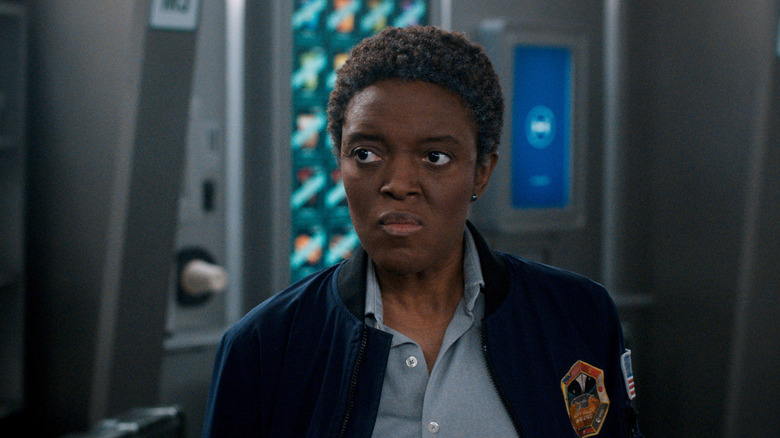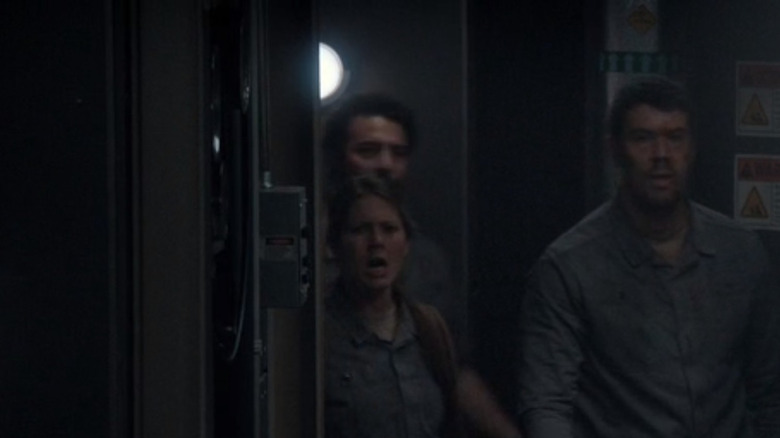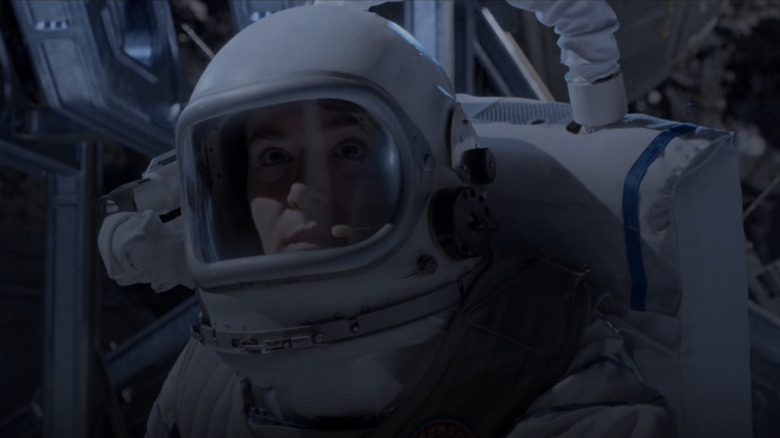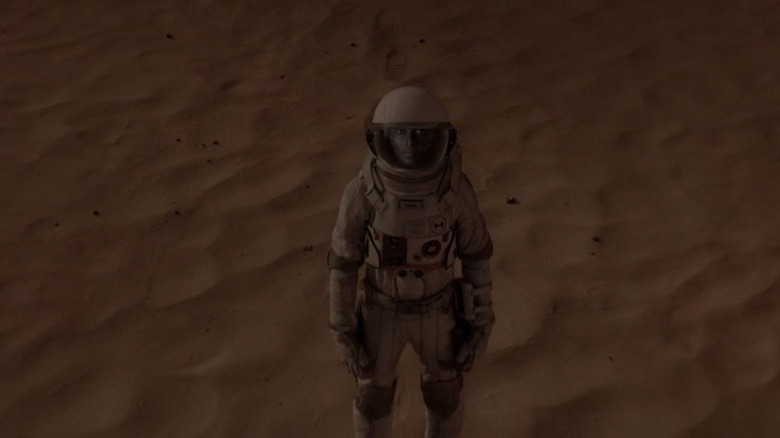For All Mankind Season 4 Finale Explained: An Asteroid Heist And A Jump To The Future
This article contains spoilers for "For All Mankind" season 4.
Apple TV+ has quickly become the home of sci-fi on TV. Between "Monarch: Legacy of Monsters" delivering kaiju action on the small screen, "Foundation" giving us an epic adaptation of Asimov's iconic book series, and "For All Mankind," it's an exciting time to look to the stars.
That last one, in particular, is doing something unique, presenting an uplifting and optimistic show of what humans can achieve when working together to explore outer space. "For All Mankind" began as an alt-history drama about a timeline where the Soviet Union got to the moon before NASA, causing a ripple effect with changes to the culture. Since then, it has become more and more of a proper science fiction show (one with as much love for science and technology as "Dr. Stone").
In its fourth season, "For All Mankind" is now set in 2003 and a few things are different. The Soviet Union is still around, and the U.S. had its first openly gay female president back in the '90s. We have a colony on Mars and can make the trip there in just a month. Electric cars are super common, and climate change is no longer a concern.
Oh yes, and there's that whole asteroid heist to deal with. The season 4 finale featured some big developments and yet another time jump that teases what's to come in season 5. Let's break it all down, shall we?
Space heist
Where the first three seasons of "For All Mankind" were all about Cold War-era politics, season 4 was about the haves and have-nots. Now that space exploration is finally resulting in huge financial gains for all concerned parties (at least those at the top), class warfare has become a much more pressing concern.
We see this in the rise of labor organizing at Helios, the biggest tech company and competitor to NASA on Mars. Earlier in the season there was even a workers' strike on Mars following a similar one on the Moon. The workers aren't happy, and the tensions are brewing.
Meanwhile, the U.S. and the Soviet Union are desperate to bring a huge asteroid to Earth so they can mine it faster than if they have to mine it on Mars. The downside is that this would give them a reason to stop the Mars program as the money is closer to home.
This prompts Helios' co-founder and the show's amalgamation of Steve Jobs and Elon Musk, Dev Ayesa, to pull a space heist and steal the asteroid for the sake of Mars. Hot on their tails are both the CIA and KGB, who have operatives on Mars and are interrogating one of the Helios' workers for information on Dev's asteroid-stealing crew on the Martian base.
Progress is never free
Everything comes to a head in the finale. First, the CIA and KGB manage to carbon dioxide-board the information out of Helios' worker Miles and find the rebels' secret hideout, which forces Dev's Eight to seek refuge in the North Korean side of the Martian base. In the meantime, Dev and Ed Baldwin manage to guide their mole onboard the Ranger spaceship capturing the asteroid to override the ship's computer so they can redirect the ship and the asteroid to enter Mars' orbit.
At the same time, Roscosmos, NASA, the M-7 coalition of countries, and Helios all try to regain control of their ship to ensure it gets to Earth rather than Mars. That is, until the former head of NASA, Margo Madison, secretly hacks the code that NASA is sending the Ranger and hands over control to Dev's team. Of course, she is arrested on the spot and will likely spend the rest of her life in prison, but as she recalls from a conversation she had with Wernher von Braun back in season 1, "Progress is never free."
Thanks to Margo's sacrifice, Dev's team successfully steals the asteroid and brings it into Martian orbit, making the Martian colony all but self-sufficient. While the team celebrates their victory, however, the armed CIA operatives begin their raid on the North Korean base. This sparks a civil war in the halls of the base against the Helios workers, which only stops when the base commander gets shot.
We then jump forward nine years in time, like every other season of "For All Mankind."
Ad Astra per Aspera
Now in 2012, Dev stands right by the Korolev Crater on Mars (which is filled with ice and the site of a mission to try and find life). He then looks at the passing asteroid, where we see a massive mining operation is underway at a site named after Grigory Kuznetsov, the first Russian on Mars.
"For All Mankind" has always been about the cost of progress, and how we should be treating space exploration as seriously and with as much enthusiasm as the Age of Discovery (except without the colonization part). Sure, there have been plenty of setbacks, and many characters audiences knew and loved died along the way, but the benefits far outweigh the sacrifices.
"Progress is never free. There's always a cost," von Braun said in season 1, but that's the wrong motto for "For All Mankind," particularly given that the context for that phrase was a man who ignored the Holocaust in the name of his so-called progress. Instead, the better motto for the show, and the phrase that should lead the show into its next decade, is "Ad Astra per Aspera" or "To the stars through hardships." The phrase is commonly associated with "Star Trek," and seems to fit this show's optimistic approach to the future much better.
Because now that Mars has likely become a self-sufficient colony, and one of the strongest economies in modern human civilization, it is time to go beyond. In season 1, the discovery of water on the Moon meant, according to Ed Baldwin, humanity now had "a refueling station on our way to the rest of the solar system." The series' creatives have previously talked about their end goal of having seven seasons. Now that Mars has been conquered, it's time we move closer to the cosmos.



